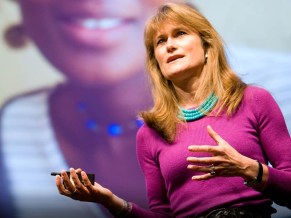
(https://img-ssl.tedcdn.com/r/images.ted.com/images/ted/79736_800x600.jpg?ll=1&quality=89&w=800)
Jacqueline Novogratz defines poverty, on a macro level, as the four billion people on Earth that make less than four dollars a day and, after aggregation, make up the third largest economy in the world. This group includes farmers, factory workers, and workers in government offices, among others. They also pay 30 to 40 times what middle class people in their economies pay for things like healthcare and water. Novogratz believes that the way to start ending poverty is creating business models that are scaleable and sustainable and work with people all over third world countries to help them end poverty themselves.

(http://mci.ei.columbia.edu/files/2012/12/8mdg_en.png)
Millennium Development Goals (MDGs) are a set of eight goals that all of the countries of the world have agreed to solve major world issues by the target year of 2015. The goals are mostly issues commonly seen in developing countries, including eradicating extreme poverty and hunger, achieving universal primary education, promoting gender equality and empowering women, reducing child mortality, improving maternal health, combatting HIV/AIDS and other diseases, ensuring environmental sustainability, and developing a global partnership for development. The International Monetary Fund (IMF) and World Bank have both made neoliberal policies, which mean that they cut government spending. Many people believe this will hold back the MDGs and will reverse progress already made.
In Own the Goals, John McArthur says that the “players on the bench” involving the MDGs are the United States and the World Bank. McArthur criticized President George W. Bush for refusing to be directly involved with the MDGs in its first few years when he endorsed the UN Millennium Declaration but thought of the MDGs as “UN-dictated aid quotas.” McArthur also criticized Washington by pointing out that by the U.S.’s refusal to work with the MDGs at the beginning, it missed the chance to display their work in helping to advance other countries. McArthur thirdly criticizes the World Bank by not adequately carrying out MDG efforts because of resentment of the UN for having an important role on developmental issues. The Bank also is more likely to put economic reform over more social investments because economists overrun the Bank. The Bank also doesn’t trust that the donor countries will provide sufficient funds for the MDGs.
In “How to Help Poor Countries,” Nancy Birdsall, Dani Rodrik, and Aryind Subramanian discuss providing more aid money to developing countries. The recent reports of the UN Millennium Project and Prime Minister Tony Blair recommended boosting assistance to developing countries. Aid has done things such as eradicate smallpox, lower infant mortality rates, improve access to modern contraception for women, increase school enrollment, and help restore peace and order in conflicts. Aid can also help donor countries give economic and political advice to the recipients of the aid. However, the authors point out that these achievements were because they were targeted objectives and that for the assistance to work out, the donor country has to spend the money wisely and there has been a “mixed performance of foreign assistance” because of struggles such as the recipient countries being overwhelmed by the amount of donors pursuing different objectives. The authors suggest that we should think creatively about how the development of these countries will happen and give the countries more control over economic policy, finance new technologies, and open up labor markets.
